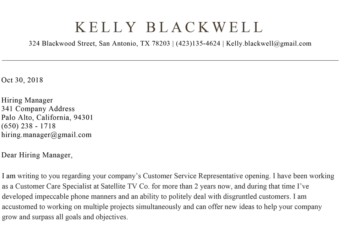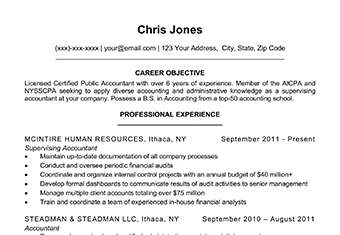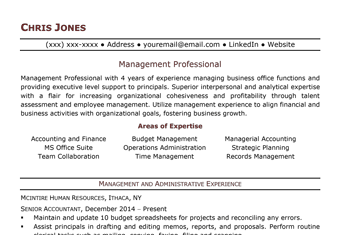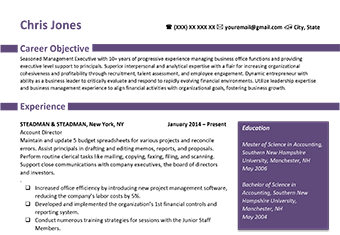Next time you’re interviewed for your dream role, you may be asked, “What motivates you?”
We know monetary compensation is often the first thing that comes to mind, but that’s not what recruiters want to hear. They want to gauge your personality and commitment to your professional role. Think of a compelling answer before the interview to increase your chances of getting the job.
In this article, we’ll cover how best to answer the “What motivates you?” question. Not only that, but we’ll also provide you with some of the best example answers.
Why do hiring managers ask “What motivates you?”
Recruiters ask you this question to discover what excites you and makes you more productive at work.
Managers know that employees can’t always be productive, but if you know how to motivate yourself and move on when you get stuck, this could be an advantage. How you motivate yourself also lets employers know whether you fit in with the company’s culture and goals.
While a resume and a well-written cover letter can be impressive, remember, at the end of the day, it’s all about getting the job done. So if your motivational factors don’t align with the company’s values and goals, you may not be the right person for the organization.
For instance, if your answer to the “What motivates you?” question is the salary, this can give a negative impression because it shows you’re only here for financial incentives and doesn’t communicate what you have to offer to the company.
Note: Online or phone interviews are the new norm today. Recruiters may ask this question over the phone or on a video call. Therefore, it should be prepared in advance.
Some other ways this question is asked
Sometimes recruiters don’t exactly ask, “What motivates you?”
They might put this question differently but remember, what they want to know is your motivation to work other than salary. Some other variations of this question can be:
- What drives you?
- What energizes you to perform your best?
- What motivates you at work?
- What motivates you to do a good job?
- What motivates you to work hard?
- What motivates you to come to work every day?
- What motivates you to succeed?
- What inspires you to do your best?
- What energizes you at work?
How to answer the “What motivates you?” question
This question is important for both you and your employer because it reveals whether you’re a good match for the position. While it’s important to think about your motivations in advance, you should also consider whether the role and the organization will be able to provide you with what you need to stay motivated.
Here are a few factors you should consider while answering the “What motivates you?” question:
1. Define what success at work looks like to you
Everyone wants to be successful, but when asked, they find it hard to answer what it actually means for them. Achieving success at work is a unique and subjective experience that varies from person to person. It’s essential to consider what success entails for you personally.
While success may not always revolve around gaining a promotion, receiving recognition, or earning a higher salary, it could encompass other factors such as cultivating a healthy work-life balance, acquiring career-enhancing skills, or improving your business communication abilities.
Take time to think about your own version of success and how it makes a difference in your personal or professional life.
2. Identify the aspects of the role that excite you
Think about what you like about this job and why you want to work here. Is it about the company’s reputation and history, or are you excited about company growth? Are there any roles or responsibilities you’ve had in the past that align with the role? Answering all of these questions will help you find your motivation.
Again, don’t just think in terms of company growth. You may find the role exciting as it offers the opportunity to advance your career and specialize in your industry.
3. Ensure your interests are aligned with your goals
We all have a few interests that we’d love to incorporate into the work we do, for example fighting for social justice or environmental protection. Aligning interests and professional goals can be a great motivator.
Having a career that captures and nurtures your interest is almost a guarantee of long-term success. Your interest motivates you to participate in work every day. Even mundane tasks are exciting.
3 example answers for “What motivates you?”
Here are a few examples to give you a more clear understanding of how to respond to the “What motivates you?” question:
Example 1: Working with a Great Team
What motivates me is working with a great team. I believe that success is built on collaboration and teamwork. I am motivated by the opportunity to work with talented and driven individuals who share a common goal. In my previous role, I was part of a team that was responsible for launching a new product. It was a challenging project, but working with my colleagues made the experience enjoyable and rewarding. Seeing everyone come together to achieve a common goal was incredibly motivating, and it made me excited to come to work each day.
Example 2: Growth and Learning
What drives me is the opportunity to grow and learn. I believe there is always room for improvement, and continuous learning is essential to personal and professional development. I constantly seek new challenges and opportunities to expand my knowledge and skills. The satisfaction I get from reaching new milestones and acquiring new skills motivates me to keep improving.
Example 3: Recognition and Rewards
What motivates me is the opportunity for recognition and rewards. I believe that hard work and dedication should be recognized and rewarded, and I am motivated by the prospect of achieving success and sharing my accomplishments. In my previous roles, I received awards for my work, and it wasincredibly motivating to see my efforts acknowledged and appreciated. It motivated me to continue striving for excellence.
Answering “What motivated you to apply for this position?”
When answering the “What motivated you to apply for this position?” question in an interview, it’s important to show the interviewer that you have a genuine interest in the company and the job. You can even talk about your greatest achievement that motivated you to apply for the job.
Here are some tips to help you answer this question:
- Do your research
- Highlight your qualifications
- Show enthusiasm
- Be specific
- Emphasize career goals
“What motivated you to apply for this position?” example answer:
“I am very excited about this opportunity as I believe my skills and experience are a perfect match for the requirements of this position. I was drawn to the company’s mission, which is very important. I also appreciate the company’s commitment to innovation and the opportunity to work with a talented and collaborative team. It fits my long-term career goals, and I am excited about the opportunity to contribute to the company’s mission significantly.”
What not to do
When answering the “What motivates you?” interview question, it’s important to be honest and authentic, but there are some things you should avoid to ensure you make a good impression on the interviewer. Here’s what not to do:
1. Be vague
Avoid vague answers that don’t provide insight into your motives. Instead, be specific and explain your point with an example.
2. Focus only on financial rewards
Financial rewards are important, but focusing on salary, benefits, or bonuses can make it seem like you’re only interested in working for the money. Instead, focus on intrinsic motivators such as personal growth, development, and making a difference. Sometimes talking about volunteer work on your resume also helps.
3. Be negative
Avoid talking about negative things that motivate you, such as a desire to prove someone wrong or a need to compete with others. Instead, focus on positive motivations such as a desire to learn, grow, and contribute to a team.
4. Be unrealistic
Avoid unrealistic remarks that may appear superior or naive. For example, if you say you want to be the CEO of a company in five years, it may seem unrealistic and inconsistent with the company’s goals and expectations.
5. Talk too much
It’s important to provide enough detail to answer the question, but avoid rambling or going off topic. Keep your answers concise and to the point, focusing on your primary motivations related to the position and company.
Conclusion
Remember to keep your responses honest, concise, and relevant to your job and company. By avoiding these common mistakes, you can make a good impression in an interview and increase your chances of getting a job.
Create a compelling resume and dream job cover letter to get noticed with Resume Companion!







